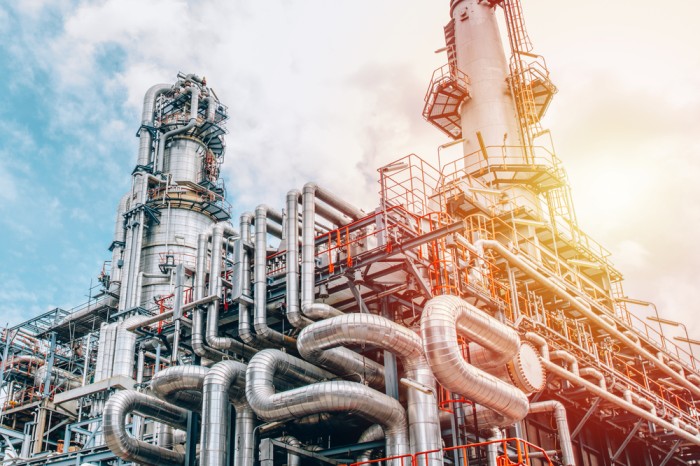In a bustling city, a group of environmental activists gathered in a cozy café, deep in discussion about the impact of everyday products on the planet. “Are all products created equal?” one asked, pondering the pros and cons of what we use. Another, sipping their coffee thoughtfully, suggested, “Let’s delve into the benefits and drawbacks of petrochemical-derived products.” And so, their conversation shifted to exploring how these common items, derived from petrochemicals, influence our lives and the environment around us. They discussed how petrochemical products are ubiquitous in modern life, present in everything from plastics to pharmaceuticals, and how reducing our reliance on them could lead to a more sustainable future.
What Are Petrochemical-Derived Products and How Are They Produced?
Petrochemical-derived products are created from hydrocarbons found in crude oil and natural gas. The production process involves several key steps:
Crude Oil Refining
The journey begins with refining crude oil in a distillation column, separating it into different fractions based on boiling points, such as naphtha, which is essential for petrochemical production. Crude oil is a complex mixture of hydrocarbons, and refining is the initial step in the process of converting it into valuable products.
Steam Cracking
Naphtha or natural gas is then subjected to steam cracking, a process that breaks down large hydrocarbons into smaller ones, producing ethylene, propylene, and other basic petrochemicals. Steam cracking is a crucial step in the petrochemical industry, as it provides the building blocks for a wide range of downstream products.
Polymerization and Synthesis
These basic petrochemicals undergo polymerization or other chemical reactions to form a wide range of products, including plastics, synthetic fibers, and various chemicals. Polymerization involves combining monomers to form polymers, which are then processed into final products such as polyethylene, polypropylene, and PVC. The synthesis of specialty chemicals and intermediates also occurs at this stage, contributing to the diverse array of petrochemical-based products available in the market.
What are the Advantages of Petrochemical-Derived Products in Manufacturing?
Petrochemical-derived products offer numerous advantages in manufacturing, making them indispensable in various industries. Let’s explore their benefits.
- Versatility: Petrochemicals can be transformed into a wide array of products, including plastics, synthetic fibers, and chemicals, providing diverse applications across multiple sectors.
- Cost-Effectiveness: Due to the abundance of raw materials and efficient production processes, petrochemical-derived products are often more affordable than their natural counterparts.
- Durability: Products made from petrochemicals, such as plastics and synthetic rubbers, are known for their durability, resistance to wear and tear, and longevity.
- Performance: Petrochemical products can be engineered to meet specific performance requirements, such as high strength, flexibility, and chemical resistance, enhancing their utility in specialized applications.
How Do Petrochemical Products Impact the Environment?
While petrochemical-derived products offer significant benefits, they also pose environmental challenges. Let’s examine some of the key environmental impacts.
- Pollution: The production and disposal of petrochemical products can contribute to air, water, and soil pollution, impacting ecosystems and human health.
- Resource Depletion: Petrochemical products are primarily derived from non-renewable fossil fuels, leading to the depletion of natural resources and contributing to environmental degradation.
- Waste Management: Many petrochemical products, particularly plastics, are not biodegradable and contribute to long-term waste management challenges, including ocean pollution and landfill accumulation.
- Carbon Footprint: The extraction, processing, and transportation of petrochemical raw materials generate significant greenhouse gas emissions, contributing to climate change.
What Role Do Petrochemical Products Play in Everyday Life?
Petrochemical-derived products are integral to modern life, supporting a wide range of applications. Here’s how they impact our daily lives.
- Consumer Goods: Plastics, synthetic fibers, and resins derived from petrochemicals are used in household items, electronics, packaging, and clothing, enhancing convenience and functionality.
- Healthcare: Petrochemical products are essential in the production of medical devices, pharmaceuticals, and personal protective equipment, ensuring the safety and well-being of patients and healthcare professionals.
- Transportation: Petrochemicals are used in the manufacture of automotive components, fuels, and lubricants, contributing to the efficiency and performance of vehicles.
- Construction: Synthetic materials derived from petrochemicals, such as insulation, pipes, and adhesives, play a crucial role in building and infrastructure projects, improving durability and energy efficiency.
How Can We Mitigate the Drawbacks of Petrochemical Products?
To address the environmental and social challenges associated with petrochemical-derived products, various strategies can be implemented. Let’s explore some mitigation approaches.
- Recycling and Reuse: Promoting the recycling and reuse of petrochemical products, particularly plastics, can reduce waste and conserve resources, contributing to a circular economy.
- Sustainable Alternatives: Developing and adopting sustainable alternatives, such as bioplastics and bio-based chemicals, can reduce reliance on fossil fuels and minimize environmental impact.
- Innovation in Manufacturing: Advancing manufacturing technologies to improve energy efficiency, reduce emissions, and minimize waste can mitigate the environmental footprint of petrochemical production.
- Regulation and Policy: Implementing stringent environmental regulations and policies can drive industry practices towards sustainability, ensuring responsible production and disposal of petrochemical products.
What Petrochemical Products Does Avon Commercial Offer to Meet Industry Needs?
As a leading chemical supplier in Pakistan, Avon Commercial provides a comprehensive range of petrochemical products to meet diverse industry requirements. Here are some key offerings:
- Polyethylene: Widely used in packaging, containers, and piping, polyethylene offers versatility and strength for various applications.
- Polypropylene: Known for its durability and resistance to chemicals, polypropylene is used in automotive parts, textiles, and consumer goods.
- Polystyrene: Used in packaging, insulation, and disposable products, polystyrene provides excellent rigidity and thermal insulation properties.
- Polyvinyl Chloride (PVC): PVC is used in construction materials, medical devices, and electrical cables, offering durability and chemical resistance.
- Ethylene Glycol: Essential in the production of antifreeze, polyester fibers, and resins, ethylene glycol is a versatile petrochemical product used across multiple industries.
How Do Petrochemical Products Compare to Natural Alternatives?
Comparing petrochemical-derived products to natural alternatives highlights their respective advantages and limitations. Let’s examine this comparison.
- Cost and Availability: Petrochemical products are often more cost-effective and readily available than natural alternatives, making them attractive for mass production and widespread use.
- Performance and Durability: Synthetic materials derived from petrochemicals generally offer superior performance and durability, making them suitable for demanding applications.
- Environmental Impact: Natural alternatives, such as bio-based plastics and natural fibers, typically have a lower environmental impact but may face challenges related to scalability and performance consistency.
- Innovation and Sustainability: Ongoing research and innovation are driving the development of sustainable petrochemical products and processes, bridging the gap between performance and environmental responsibility.
Conclusion: Balancing Benefits and Drawbacks
Petrochemical-derived products play a vital role in modern life, offering numerous benefits in terms of versatility, cost-effectiveness, and performance. However, their environmental impact and resource dependency present significant challenges that must be addressed through innovation, sustainability practices, and responsible consumption. By understanding the benefits and drawbacks of petrochemical products and partnering with leading chemical suppliers in Pakistan, such as Avon Commercial, businesses can make informed decisions that balance performance with environmental stewardship.
Make sure to explore the rest of the site for more fascinating Blogs!




